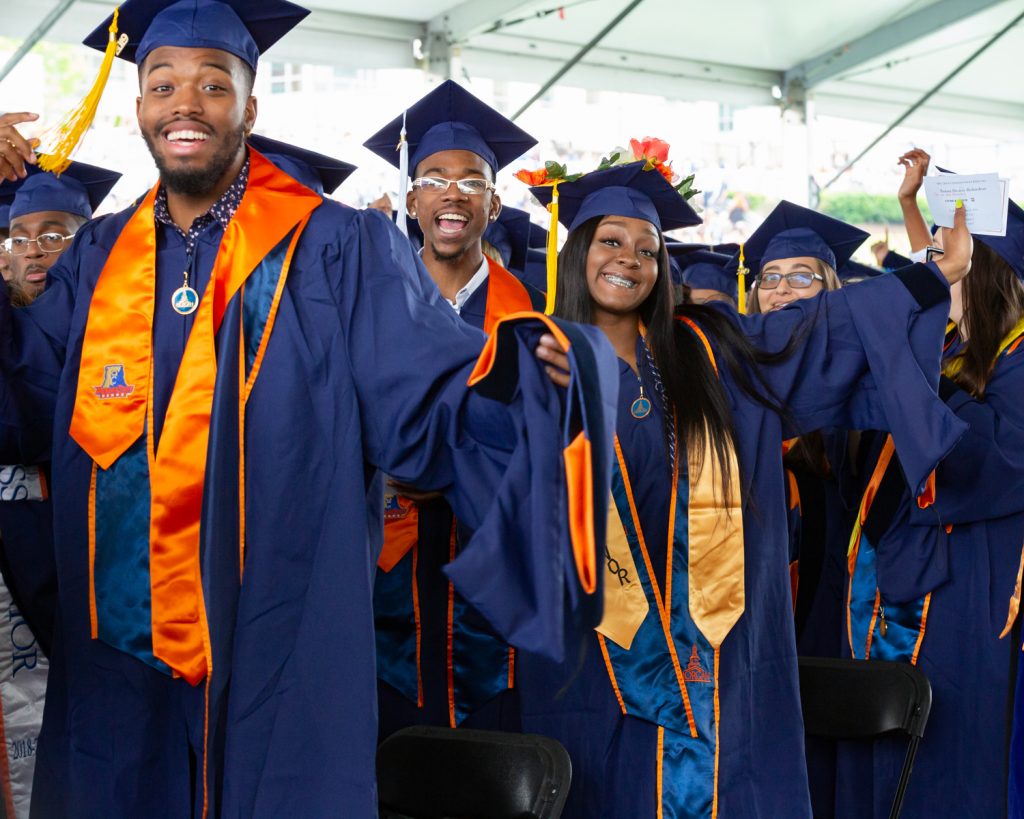After 15 years of litigation, Maryland’s General Assembly approved $577M to settle discrimination and underfunding at Maryland’s HBCUs.
Systemic racism had a chokehold on educational advancement for Black and Brown students who attended these historically significant universities.
Governor Larry Hogan signed the settlement into law, as Morgan State, Bowie State, University Of Maryland Eastern Shore, and Coppin State will receive funds they were denied during the years of underfunding.
Hogan, lawmakers and school officials described it as a landmark in addressing historic inequities as it pertains to funding for the schools.
Maryland House Speaker Adrienne Jones, a Democrat who advocated strongly for this, was ecstatic and stated the following, “We finally got to this day.”
Jones is the state’s first Black speaker who sponsored the bill, and she couldn’t taper her excitement to the applause being given at Bowie State University, where Hogan and lawmakers signed the bill. She also added that she is a sister and mother to HBCU graduates.
This didn’t happen without a lengthy, long-standing fight in court, and just last year Hogan, a Republican, vetoed a similar bill citing economic difficulties created by the COVID-19 pandemic.
Governor Hogan told reporters the state was facing potential daunting deficits and uncertainties during the early stages of this unprecedented and unpredictable time, and he didn’t just veto this bill but many others as well. Of course, he did remember to mention the state had made historic investments in the schools in recent years.
This was a historic bipartisan measure that is definitely a step forward into what Blacks and HBCU graduates and supporters will be able to call unprecedented as it pertains to the inequities in our higher education system, by making substantial investments in the state’s HBCUs.

The funds in the settlement will be used for scholarships and financial aid support services, as well as faculty recruitment and development. The funding could also be used to improve dorm and on-campus living conditions, while also expanding and improving existing academic programs.
President Anita Breaux of Bowie State believes the funding will help the school stay competitive. As the schools continue to grow they need additional support to help build new academic programs to open up wider and relevant opportunities for future students who would like to attend BSU. HBCUs mean a great deal to the Black community, and it means something to attend one.
The bill itself passed unanimously in the Senate and by an overwhelming majority in the House. Although payments won’t begin until the fiscal year 2023, it’s coming and it provides a sense of relief for HBCUs after the struggles they’ve endured before the pandemic and even more during.
Maryland Lawmakers Approve $577 Million HBCU Settlement https://t.co/TPtRvixEuX
— Black Enterprise (@blackenterprise) March 18, 2021
Funding will be distributed each year to the schools, based on the share of students enrolled during the preceding academic year, compared to the number of students enrolled at all HBCUs.
Morgan State will receive ($24M) in 2023, Bowie State ($16.8M), University Of Maryland Eastern Shore ($9.7M) and Coppin State ($9M).
For the record, this has been a good year for the HBCU community as it pertains to donations made with Morgan State getting a combined ($60M) from MacKenzie Scott ($40M) ex-wife of Amazon CEO Jeff Bezos. And another ($20M) from former Morgan State student Calvin Tyler. Bowie State received ($25M) and UMES ($20M).
On June 1st the final settlement should be approved and ready to go. This has to be one of the greatest and largest pro bono settlements in history. The suit itself dates all the way back to 2006 when it was alleged that the state had blatantly underfunded the institutions while developing programs at traditionally white schools.
Those schools compete directly with HBCUs and look to drain prospective students away from HBCUs.
Back in 2013, a federal judge found that the state had maintained a “dual and segregated education system” which violated the Constitution.
These programs will allow the HBCUs to stay competitive in recruiting students of color, and all students. The goal is to eliminate a systemically oppressive racial divide in the state’s higher-education system.



